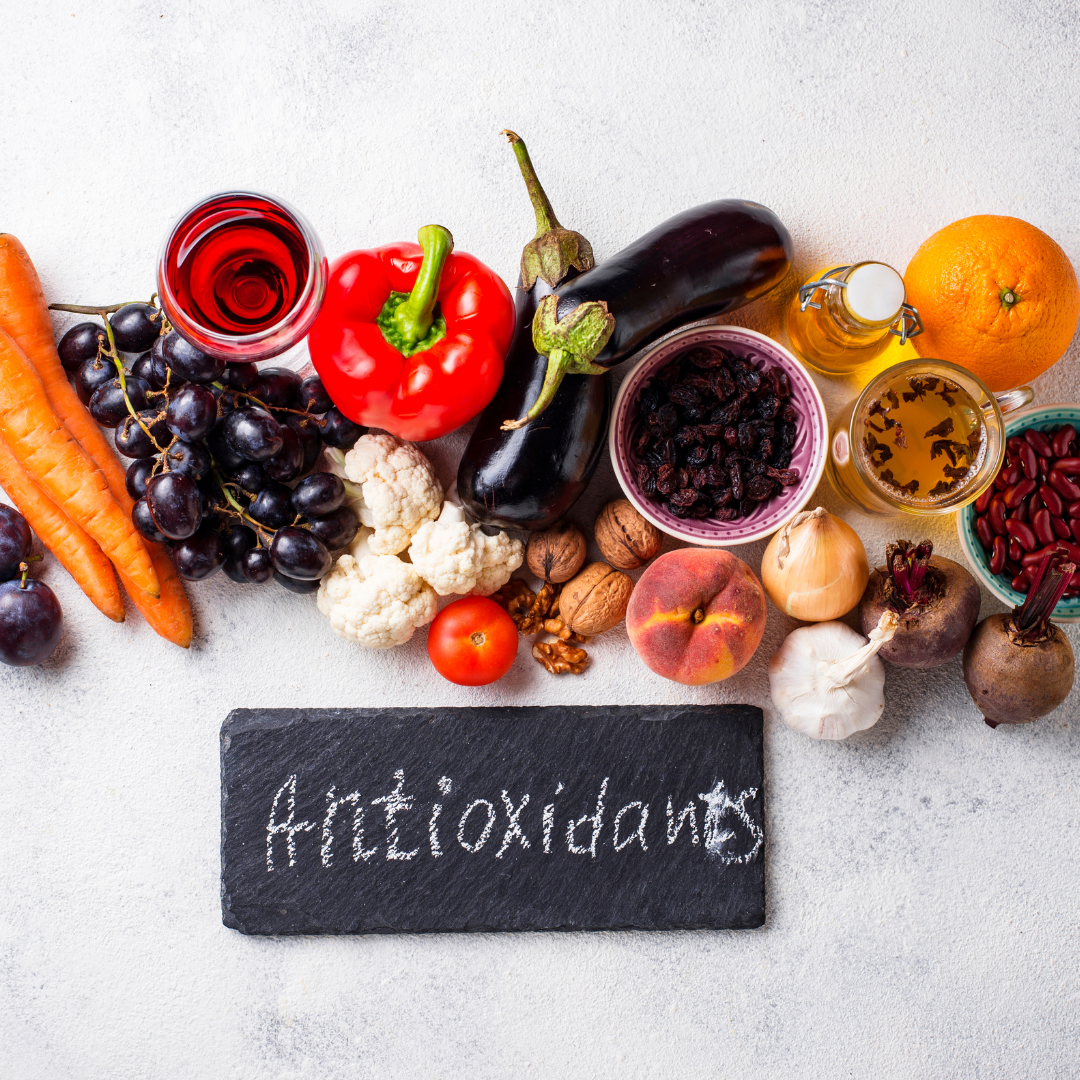Antioxidants are all over the news. And not just any antioxidants, but “super-antioxidants.” The word itself is enough to make anyone want to run out and buy them, right? So, what exactly is an antioxidant? How do they help our bodies?
What are Antioxidants?
When we think of antioxidants, we almost always think of them as the good guys, helping our bodies fight harmful free radicals that cause deterioration of cells and eventually contribute to disease. But did you know that antioxidants don’t just fend off damage to healthy cells and they can also thwart viruses. And, if that doesn’t convince you of their importance to our health, consider this, if you’re like most people, your body has a limited ability to produce antioxidants on its own.
Antioxidants are substances that protect your body from the damage caused by free radicals. Whenever you breathe, eat, or move, your body produces free radicals. Free radicals are molecules that have one or more unpaired electrons. Free radicals are highly reactive because they are looking for electrons to pair up with. Your cells suffer harm from the unpaired electrons, which can hasten their aging process or possibly lead them to perish. Your body contains antioxidants like glutathione that act to combat free radicals and shield your cells from harm. This explains why so many individuals tend to be obsessed with natural additives, such as glutathione supplement.
Although your body’s defenses usually keep the damage from free radicals to a minimum, some free radicals still manage to slip through your body’s defenses. But antioxidants can protect your cells from free radical damage. You can get antioxidants from foods, but the body also produces its own antioxidants to help defend against free radicals.
For individuals struggling with heart disease or compromised heart health, integrating antioxidants into their diet can be a big step towards improving their well-being. Antioxidants offer a strong defense against oxidative stress-a key culprit in cardiovascular ailments. Studies suggest that regular consumption of antioxidant-rich foods can lower blood pressure, reduce cholesterol levels, and enhance endothelial function, which are critical factors in managing heart health. To find out more about its cardiovascular benefits, it’s a good idea to visit cardiologists in Milford, PA (or elsewhere) for an expert opinion.
The Benefits
Antioxidants are a hot topic in the public health world. There are many theories as to why antioxidants are good for you. Well, antioxidants are essentially a “preventative” measure to keep the body healthy. It is believed that it can help promote cellular health and may even help protect against cancer. Here are the benefits that you can expect from this wonderful substance:
- Antioxidants protect your body from damage caused by free radicals. Free radicals are molecules that can damage the cells in your body. To protect against this damage, your body uses antioxidants to neutralize free radicals. When you eat antioxidants, you’re protecting your body from this damage.
- Antioxidants are extremely important health supplements that are known to help our bodies fight illnesses and diseases. It can also decrease your chances of developing chronic diseases and age-related eye diseases. However, supplements shouldn’t be your last resort. For deteriorating eyesight problems, consult eye clinics like SharpeVision (https://sharpe-vision.com/seattle-bellevue/) for proper treatment.
- Antioxidants are good for the heart. The antioxidants in green vegetables may reduce the risk of heart disease, stroke, and cancer. The body uses antioxidants to protect cells from free radicals, which can cause cell damage that can lead to disease.
- Antioxidants are compounds that help to neutralize reactive oxygen species (free radicals). Although these free radicals are naturally produced during the body’s normal metabolism, they can also be caused by exposure to tobacco smoke, pollution, radiation, and other environmental toxins.
Where Can We Get This Substance?
Food is packed with antioxidants–compounds that prevent disease and slow the aging process. These are found in foods that do not spoil quickly, such as fruits, vegetables, whole grains and nuts, and even in some meat. Other sources of antioxidants include green tea, red wine, nuts, and chocolate. Antioxidants are also found in some foods fortified with vitamin E or selenium.
The two most commonly known antioxidants are beta-carotene and vitamin C, but there are many others. Scientists estimate there are more than 10,000 antioxidants in nature, and we don’t even know their names yet.
Not all antioxidants are created equal-there are both natural and synthetic antioxidants. Although antioxidants can be found in an abundance of food like fruits, vegetables, nuts, and even coffee, taking a supplement is a great way to ensure you get the right amount of it without making an effort to consume all of the recommended servings of produce. While supplements can help bolster your antioxidant levels, they should not be your only source of nutrition. It is still better to get natural antioxidants.
Before You Consume a Lot of Antioxidants
Antioxidants are a hot topic in the health world right now, and for a good reason. Many of the foods that are known to help prevent sickness and disease also happen to be loaded with nutrients like vitamins and minerals, which help protect our cells from damage and fight off disease. However, people often forget that while eating these foods is a great start, it is also important to take a multivitamin to ensure that we are getting all the nutrients that we need.

